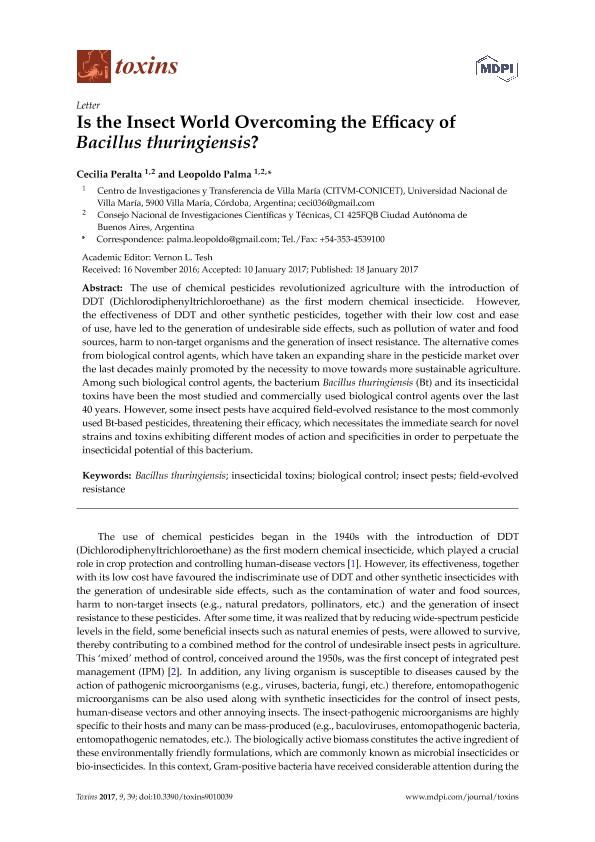Artículo
Is the insect world overcoming the efficacy of bacillus thuringiensis?
Fecha de publicación:
18/01/2017
Editorial:
MDPI AG
Revista:
Toxins
ISSN:
2072-6651
e-ISSN:
2072-6651
Idioma:
Inglés
Tipo de recurso:
Artículo publicado
Clasificación temática:
Resumen
The use of chemical pesticides revolutionized agriculture with the introduction of DDT (Dichlorodiphenyltrichloroethane) as the first modern chemical insecticide. However, the effectiveness of DDT and other synthetic pesticides, together with their low cost and ease of use, have led to the generation of undesirable side effects, such as pollution of water and food sources, harm to non-target organisms and the generation of insect resistance. The alternative comes from biological control agents, which have taken an expanding share in the pesticide market over the last decades mainly promoted by the necessity to move towards more sustainable agriculture. Among such biological control agents, the bacterium Bacillus thuringiensis (Bt) and its insecticidal toxins have been the most studied and commercially used biological control agents over the last 40 years. However, some insect pests have acquired field-evolved resistance to the most commonly used Bt-based pesticides, threatening their efficacy, which necessitates the immediate search for novel strains and toxins exhibiting different modes of action and specificities in order to perpetuate the insecticidal potential of this bacterium.
Archivos asociados
Licencia
Identificadores
Colecciones
Articulos(CCT - CORDOBA)
Articulos de CTRO.CIENTIFICO TECNOL.CONICET - CORDOBA
Articulos de CTRO.CIENTIFICO TECNOL.CONICET - CORDOBA
Citación
Peralta, Cecilia; Palma, Leopoldo; Is the insect world overcoming the efficacy of bacillus thuringiensis?; MDPI AG; Toxins; 9; 1; 18-1-2017; 1-5
Compartir
Altmétricas




